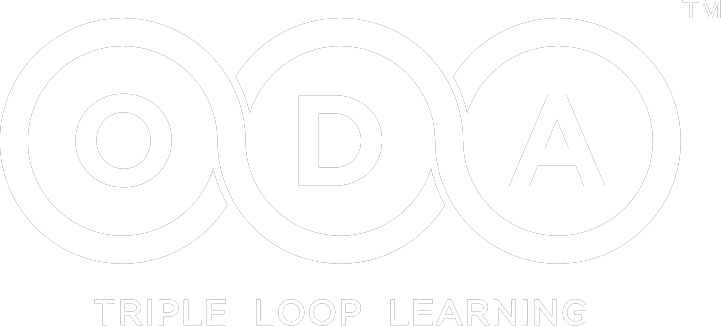First Six months in a CXO role.
The organisation did an extensive search and from many candidates the consulting firm suggested, finally selected one. The board also met the candidate and everything seems to be perfect. The HR head, the CEO and also the board explained the organisational context, the future plans and the challenges. The candidate through his own sources also collected information about the culture of the organisation, about the dynamics in the leadership team and business aspirations. Both parties seems to be excited.
In the first six months in a c-suite role, the new leader is living a life in a fishbowl. Everyone is watching and they are giving meaning to his or her every word, every action and every email. The organisation compare him or her with previous leader, start creating hypothesis about the new leader’s intentions, aspirations and capabilities.
There is huge expectations on the leader from Promoter or CEO to quickly grasp the business, turn around the situation and drive performance.
In the minds of your employees who reports to the new leader, there is insecurity, fear, confusion and hope. His or her peers are waiting and watching how the new leader will fit in.
We have in India, cases of many CEO or CXO level leaders failing in the initial years and quitting. Currently we have new CEOs in some of our large organisations like TATA, AXIS Bank, IDFC etc. We also have positive stories where the new leader has been able to build acceptability fast and Tim Cook is an example. Given that his predecessor was Steve Jobs—the most iconic CEO of our time—Cook arguably faced more dissection initially that any other CEO has ever experienced.
Most newly hired CXO level leaders we have interacted with experienced these Three phenomena .
- A Pressure to justify selection: When taking on a new role with more responsibility, any professional is eager to prove that he or she was the right choice.
- The knowledge that you’ve been hired to get results: Ultimately all CEOs, and CXOs are judged by the yardstick of performance. Nothing wrong with that, but it can increase the tendency to leap into action all too quickly.
- An unprecedented level of scrutiny. In the early days every one of the new leaders emails, conversations, speeches, and memos is put under a microscope. People will try to figure out if there is some subtext or hidden agenda between the lines.
How could organisations support the CXOs at this stage?
While the CHROs could play the role of a coach or a mentor, remember the CHRO is also part of the leadership team and has an agenda. So while it is important that CEO and CHRO need to hand hold the new leader, as they are also part of the team dynamics, an external coach would be an ideal strategy.
Executive Coaching
Unlike therapy, which goes into depth about various issues usually dealing with the past and consulting which generally results in giving the client answers, coaching is more action-oriented and focuses primarily on the present and future. Coaching focuses on what the new leader wants and utilizes a process through the one-on-one coaching sessions to enable him or her to self-discover, learn and determine their own “answers”. It is the client who determines the goals and commits to their goal, while allowing the coach to help hold them accountable.
So the coach could help the new leader to understand the organisation culture faster, understand expectations from various stakeholders, discovering which of the strengths to use and what actions could create short term and long term results. Because coaching is a confidential relationship between the coach and the client, there is a deeper level of sharing, self-disclosure and reflection.
Some of the common traps that new CXOs could get in and can addressed effectively through working with an experienced and trained coach.
Overemphasizing quick decisions and action
Many leaders are eager to roll up their sleeves and make things happen when they’re new in the job. And an early success definitely builds momentum. There is an anxiety to create some quick wins that proves their capability. We believe a Pace, Pace, Pace and then Lead strategy is better. Pacing with organisation culture, the people around to build a deeper understanding and to build trust help reduce resistance. Sometimes, we believe “slow is fast” and “less is more”
Proving that you’re smarter than everyone on the team
One of the senior leader kept telling me how he knew much more than the existing people in the leadership team. He also used all opportunities to share this with the CEO. Even if it’s true, others who have been there in the system have more contextual knowledge and they have a role in making the new leader succeed or fail. Building effective relationships with peers, the direct reports and the key people in organisations is the most important thing and building relationships takes time.
Not allowing others to know the person behind the designation.
This is connected to the earlier point of building relationships. No one trust someone who is guarded, wear a mask and do not make themselves vulnerable. People want to know what the new leader stand for, what his or her values and world views are. They want to know the hopes and fears and what principles he or she use to take tough decisions.
Overlooking the importance of setting and managing expectations
Recently when we met a new CEO, he was pretty sure about what focus area is and then when we met the board, we realised the board had clearly articulated their expectations and they felt he has not really understood those expectations. This could happen to all of us. Because what we hear is often what we want to hear and we seldom cross check to make sure that the expectations are clear.
Recently an employee of a large Indian organisation told me that the new CEO in the first week promised that he is not going to change anything and by second month he is hiring people who used to work with him in his earlier organisation.
All of us are prone to all these traps when there is pressure and we are only able to see one perspective. There is something called a streetlight effect that we all prone to . A policeman sees a drunk man searching for something under a streetlight and asks what the drunk has lost. He says he lost his keys and they both look under the streetlight together. After a few minutes the policeman asks if he is sure he lost them here, and the drunk replies, no, and that he lost them in the park. The policeman asks why he is searching here, and the drunk replies, ‘this is where the light is’. Yes we would be searching and trying to solve problems based where the light it. And the light, our current level of awareness is often limited .
So How exactly coaches help?
- Undivided attention without an agenda: A coach listens to you with an unbiased view. A coach wants nothing more than your success, whatever that might mean for you or however that might look like. People who are close to you, your boss, subordinates, peers all have an agenda when it comes to you, but a coach is there to support you to achieve what you want. This is an excellent example for how people who are close to you can have agendas for you. This is from one of my favourite movies, ‘Before Sunrise’. ‘I’d say to my Dad, ‘I want to be a writer’, and he’d say, ‘Journalist.’ I’d say, ‘I want to have a refuge for stray cats’ and he’d say, ‘Veterinarian.’ I’d say, ‘I want to be an actress’ and he’d say, ‘TV newscaster.’ It was this constant conversion of my fanciful ambitions into these practical money-making ventures.’
- Clarity and Alignment: Many a time there is confusion about what we want and how to go about it. A coach brings clarity about your goals and action plans.
- Accountability: Having regular appointments and someone following up with you on your action plan helps you stay on track.
- Unconditional Support: Most coaches follow Carl Roger’s approach. Carl Roger, a psychologist defined unconditional positive regard as being ‘an outgoing positive feeling without reservations, without evaluations’. A coach’s support is not conditional upon the client being a certain way or achieving a particular goal. A coach wants only for the person to realise his/her goals in the most effortless, productive and satisfying way possible. A coach creates a safe space of listening, compassion and unconditional support. These qualities help to create a context of acceptance and possibility – qualities that help us to bring forth our vision. Coaching is also a confidential relationship where a client feels safe to express.
Powerful questions to create awareness and generate new possibilities: Coaches are trained to ask questions and not to give solutions. It is the consultant’s job to give expert answers. Coaches ask questions to help you have clarity, awareness and help you discover answers for yourself.
Focus on your strengths and align them to your goals: A coach helps you to discover your core strengths and gifts and expand them to reach your life purpose. When you are operating from your strengths, you experience a flow and greater sense of satisfaction and achievement.
So If you get an experienced and trained coach who have worked at CXO level, you could drastically improve the success rate of the new leaders in your organisation.
-
Santhosh Babuhttps://www.odalternatives.com/author/santhosh-babu/
-
Santhosh Babuhttps://www.odalternatives.com/author/santhosh-babu/
-
Santhosh Babuhttps://www.odalternatives.com/author/santhosh-babu/
-
Santhosh Babuhttps://www.odalternatives.com/author/santhosh-babu/
Please click here to download the latest OD PUBLICATION.


